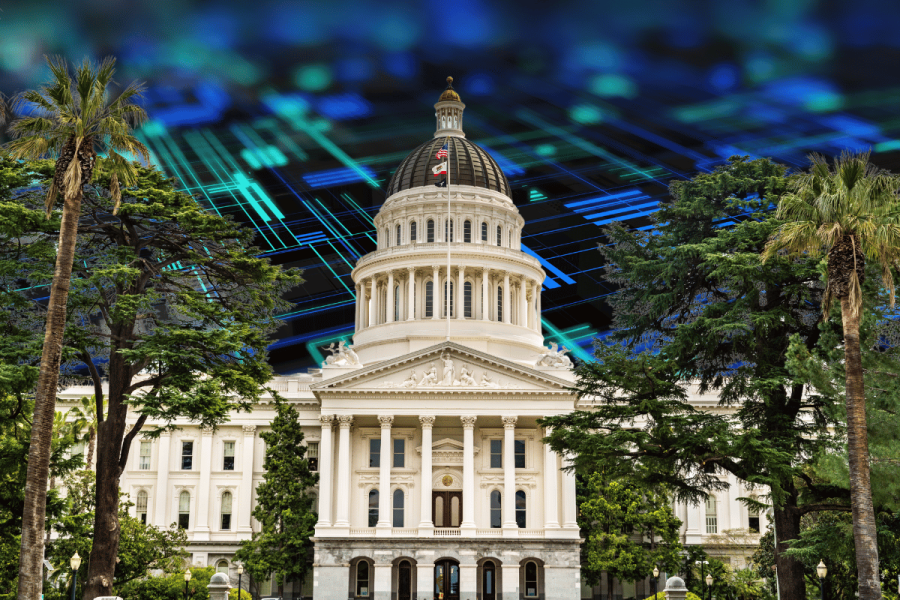California Advances Landmark AI Safety Law for Frontier Models

Introduction
California is on the verge of enacting the most comprehensive AI safety legislation in the United States, the Frontier Model AI Safety Bill (SB 53). The bill, which recently advanced in the state legislature, sets new transparency and accountability standards for advanced AI models, with potential ripple effects across the tech industry.
What the Bill Mandates
- Mandatory safety disclosures: Developers of "frontier" AI models—those with the power to impact critical infrastructure or public safety—will be legally required to document safety measures and incident response protocols.
- Incident reporting requirements: Companies must promptly report any safety incidents or misuse involving their models.
- Whistleblower protections: The bill establishes protections for employees who report safety concerns, aiming to encourage internal accountability.
- Scope and coverage: The legislation focuses on systems with the potential for major societal impact, including models underpinning healthcare, utilities, and transportation.
Industry and Policy Impact
SB 53 positions California as a global leader in AI governance. The legislation's broad reach may set expectations for tech giants and startups alike, given that many U.S. and international AI companies operate in the state. Experts compare the bill's potential influence to California's pioneering auto emissions and digital privacy laws, which became de facto standards nationwide[1].
- Tech industry response: While some praise the bill as a step toward responsible AI, others warn it could stifle innovation and increase compliance costs, especially for smaller companies[1].
- Regulatory trendsetter: Observers expect other states and possibly federal lawmakers to track California's lead, as debates over AI governance heat up globally.
Future Implications and Expert Perspectives
Supporters, including leading AI ethicists and some policymakers, say the bill fills a gap left by voluntary industry standards, pointing to increasing concerns over "frontier" models' misuse. Critics—often industry lobbyists—argue ambiguous language and overbroad definitions could unintentionally hamper emerging technologies. The bill has already been amended based on feedback from both sides.
“SB 53 looks to accelerate transparency and public accountability in the age of increasingly powerful AI,” commented one Stanford policy researcher, emphasizing the broad consensus that voluntary guardrails are no longer sufficient.
The bill awaits a final legislative vote later this month, with national attention on whether California once again becomes the first mover on a tech policy that shapes global industry standards[1].
How Communities View California’s AI Safety Law
The debate around California’s SB 53 AI safety bill has spread rapidly across social platforms, dividing opinion between regulatory advocates, technologists, and industry insiders.
-
Pro-Regulation Advocates (≈40%): Tech researchers and policy experts on X (e.g., @danieljeffries, @rachelcoldicutt) argue the bill is overdue, praising its transparency requirements as a needed check on corporate self-regulation. Many Redditors on r/MachineLearning approve the added safety disclosures, referencing prior self-inflicted harms in tech.
-
Industry Critics (≈35%): CEOs, startup founders, and some investors like @balajis express concern on X and in r/ArtificialIntelligence that the bill’s broad definitions and reporting mandates could hinder innovation or push startups out of California.
-
Pragmatic Middle (≈20%): Policy analysts and legal scholars (e.g., @katecrawford, r/techpolicy) say the law’s effect depends on implementation details. They focus on whether the definitions of 'frontier model' and 'safety incident' are sufficiently clear, advocating for ongoing stakeholder review.
-
Skeptics of Impact (≈5%): Some in r/technology dismiss the law as symbolic, doubting enforcement or suggesting tech giants will find workarounds.
Notable voices shaping the discussion include AI safety researcher Timnit Gebru and several California legislators, fostering a high-profile, often heated debate. The overall sentiment is cautiously optimistic but tinged with anxiety over real-world consequences for the AI sector.